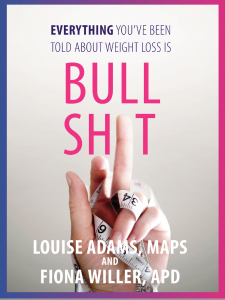The weight loss industry has always been a bullshit PR machine but Novo Nordisk has created a gargantuan geyser of misinformation. In August 2023 they issued a strategic press release claiming that their weight loss drug Wegovy reduced ‘major cardiovascular events (MACE)’ by 20%, according to the results of their SELECT trial. They claimed this was ‘proof’ that it produced health benefits, and announced their intention to apply to the FDA to extend Wegovy’s approval to include use for cardiovascular risk reduction.
But the release was all sizzle with no steak, because the SELECT results hadn’t even been published. In fact, the final participant had attended their last appointment just 5 weeks prior.
|
|
Without data, there was no way to verify Novo’s claims. But in the ‘age of Ozempic,’ evidence is an afterthought. The press release went viral, with gushing media coverage. The American College of Cardiology and major news outlets including NBC, CNN, CBS, and the New York Times all dutifully regurgitated Novo’s ‘20% cardiovascular risk reduction’ sound bite. Prestigious journal Nature reported that obesity researchers were ‘electrified’ by the news. The CNN piece included quotes from three different obesity researchers who waxed lyrical about Novo’s game changing drug. Each had received multiple payments from Novo Nordisk and Eli Lily, but the article omitted this important information.
The media circus was a masterpiece of hype, reflecting Novo’s success in shaping the global obesity narrative. For more than a decade Novo have been diligently infiltrating obesity ‘science’, which has now become an echo chamber of paid-off obesity researchers, organizations and patient groups, all of whom repeatedly absorb Novo’s key messages – that obesity is a disease which requires medical treatment, and governments and insurance companies should subsidise these important medicines. Financially conflicted researchers regurgitating Novo’s talking points are routinely interviewed by an uncritical media, and our global psyche is now chronically infected with Novo-sponsored groupthink.
|
|
After fluffing the planet with their teasing presser, Novo kept us on tenterhooks until November 2023, when the SELECT trial details were released in a standing room only event during the American Heart Association’s scientific sessions. The research was published online in the New England Journal of Medicine (NEJM) the same day. Finally, there was a study to interrogate.
|
|
But this is Big Pharma, and we must approach with extreme caution. As Ragen Chastain revealed in her substack (a must read/must subscribe!), SELECT was designed, conducted and paid for by Novo, and each of the academic authors had conflicts of interest with the Nordic company – collectively they’d been paid over $7 million US dollars – and this only includes the American researchers, whose disclosures can be found in open payments.
When reading a journal article with multiple academic authors, you’d assume that they’d actually done the research. But this is not the case.
Novo designed the trial itself along with their paid stable of obesity researchers. Novo owns all of the data, plus the database. Novo employees conducted the statistical analyses, and then sent “study tabulation data model (STDM)” datasets to Statogen, a consulting firm who work for Big Pharma, to perform what they called an ‘independent review’ of their statistics.
STDMs are a standardised format through which clinical trial data is submitted to regulators such as the FDA. They’re a selection of the data, not the raw dataset. So in the SELECT trial, the FDA never saw the original data. Neither did the academic ‘authors’, who only viewed the STDM along with a ‘certificate of authenticity’ from a consulting firm paid for by Novo.
Scientists authoring research articles should have full access to the raw data, and be able to run their own statistical analyses. Anything less is ridiculous and should be unacceptable.
A Safe Bet
Wegovy’s active compound is semaglutide, which is FDA approved for type 2 diabetes under the brand name Ozempic. The weight loss version of semaglutide, Wegovy, is essentially a mega dose of semaglutide – 2.4mg, much larger than the diabetes doses which are generally between 0.5-1mg.
|
|
In patients with diabetes, semaglutide has been shown to reduce cardiovascular risk. So it’s not a stretch for Novo to investigate whether cardiovascular risk reduction shows up in non-diabetic people taking the weight loss dose.
And of course strategically, research demonstrating an actual health impact, (beyond temporary weight loss) would super charge Novo’s lobbying efforts, creating pressure on the FDA and governments to approve and subsidise their drug for cardiovascular indications.
Risky Business
When we see headlines claiming that a drug reduces the risk of cardiovascular issues by 20% it’s easy to assume that this means if you took Wegovy, you’ll be 20% less likely to suffer a cardiac event.
But this isn’t the case.
In science, the way we communicate risk is really important.There’s straightforward ways of doing this and devious ways of doing this. Let’s look at how Novo decided to play it:
|
|
The risk statistic reported in Novo’s press release is ‘relative risk’. In SELECT 8% of participants who had placebo injections ended up having a major cardiovascular event, compared to 6.5% of those who had Wegovy. While the difference between 8 and 6.5% is technically 20% – relative to the 2 groups of people who had an event, it’s also misleading, because relative risk concentrates solely on the small group of people who do have an event whilst ignoring all of the people who won’t. Even when you’ve had a cardiovascular event, the risk of having another one isn’t 100%. There’s a much larger group of people who will not have an event regardless of having Wegovy or not. A more honest and accurate representation of the chances of Wegovy having an impact is seen below:
|
|
Here we see that in the overall group, the vast majority – 92% – experienced no MACE events. 8% of people who took placebo and 6.5% of people taking Wegovy had a cardio event. Taking into consideration the big picture, the difference between the two groups (the white bit on the graph) was only 1.5%. This statistic is called the absolute risk reduction and it’s an honest way of representing risk in the real world.
Relative risk reduction is only used by people pushing an agenda – those who want to make a treatment look more effective than it really is. People like Novo, hungry to siphon off billions of dollars from health budgets all over the world.
Sensible scientists the world over prefer to communicate risk in absolute terms. They also use something called the ‘number needed to treat’ (NNT). In SELECT, the number needed to treat (NNT) was 65 over 4 years to prevent one MACE event. This means that 65 people would need to inject Wegovy for 4 years in order to prevent just one cardio event. That translates to a lot of effort, expense, and side effects for a very small difference.
Cheaper Alternatives
There’s already drugs on the market which help reduce the risk of cardiovascular events in this population. The most common is a statin. In a 5 year study similar in design to SELECT, statins reduced the absolute risk of a repeat cardio event by 4%, with a number needed to treat of 25. Not only are statins more effective than Wegovy in reducing risk, they’re also cheaper and don’t mess with your gastrointestinal system.
Regulators Roll Over
Predictably, Novo used the SELECT trial to pressure government health systems all over the world to subsidise Wegovy. And it’s working.
In March 2024 the FDA announced approved Wegovy for cardiovascular risk reduction under a sped-up ‘Priority Review’ process. Soon after that, new guidance allowed Medicare Part D plans to cover Wegovy to prevent cardiovascular events in people with pre-existing cardiovascular disease.
This is a massive deal, because since 2003 weight loss drugs have been excluded from being covered under Medicare, following a series of scandals including the fen-phen debacle, which caused multiple deaths while the drug companies pressured the FDA to ignore the danger. But since 2010, fierce lobbying and bucketloads of cash from pharmaceutical companies has transformed the landscape of FDA approval from a desert to a leafy pharma-friendly oasis.
The UK have also approved Wegovy as a specific indication for cardiovascular use in patients with existing cardiovascular disease. And in July 2024 Novo Nordisk arrogantly released a ‘Company Announcement’ stating that they expected the European Medicines Agency (EMA) to follow suit.
In Australia, Novo are still chipping away at the Pharmaceutical Benefits Advisory Council (PBAC) to subsidise Wegovy. They’ve already been knocked back twice after the PBAC calculated it would cost our public health system more than $AU1 billion a year to bankroll their ludicrously expensive drugs. The PBAC also pointed to a lack of evidence of health benefits beyond temporary weight loss.
But Novo are gearing up for a third go – in a highly unusual step, they’ve paid the PBAC $AU270000 for a private ‘facilitated workshop.’ Hardly anyone gets to keep going back for special treatment. But a company with more money than many countries can apparently do so. No doubt they’ll use the SELECT results and the FDA approval as leverage.
Roasted in Denmark
Thankfully, not every country is rolling over. And the battle is most intense in Denmark, Novo’s home country, where the regulators are calling BS. In June 2024 the Danish Health Authority’s Institute for Rational Pharmacotherapy released a report roasting Novo’s cardiovascular claims. They said that the SELECT group differences were not ‘clinically relevant’ enough to justify widespread use. They also calculated that with a NNT of 65, preventing a single MACE event at the current price level would cost approximately 6 million DKK, which they called ‘a high price with little and uncertain effect in a high-risk population’.
Since Novo’s weight loss drugs burst onto the scene, the relentless positive publicity and subsequent backing down by regulators has been downright depressing. It’s heartening to see pushback starting, and we can only hope that at some point, science and reason will triumph over spin and money.
I’ll be back to dish out more on the SELECT trial, including some incredible facts about the role of weight loss in cardiovascular risk reduction which Novo forgot to pop into a press release. I’ll also reveal a flaw so fundamental that the entire SELECT trial should never have been conducted. Be sure to read Part 2 of this super-rant on Novo Nordisk’s masterful marketing of the SELECT trial!
If you’d like early access to my blogs, subscribe to my newsletter – by downloading my free E-Book ‘Everything You’ve Been Told About Weight Loss is Bullish*t’, you’ll be added to the newsletter list. Click here to download and join!
*By the way – if you’re loving this content, there’s an accompanying episode of the All Fired Up podcast where we visit a Novo Nordisk sponsored ‘education’ seminar featuring a fun ‘obesity escape room challenge’. It’s utterly Machiavellian and I was so mad I had to rant about all things SELECT with Ragen Chastain. She is ON FIRE and it’s a must-hear. Listen here!


